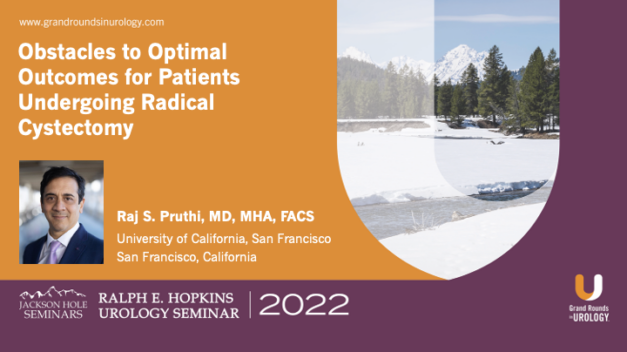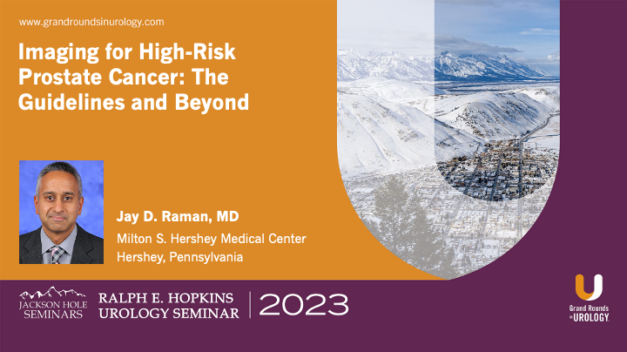Obstacles to Optimal Outcomes for Patients Undergoing Radical Cystectomy
Dr. Raj S. Pruthi discusses the obstacles to achieving optimal outcomes for patients undergoing radical cystectomy. He meticulously analyzes the multifaceted challenges encountered in the preoperative, intraoperative, and postoperative phases of radical cystectomy, a complex surgical procedure primarily performed for muscle-invasive bladder cancer.
Preoperative factors that can impede optimal outcomes, including patient comorbidities, nutritional status, and the importance of thorough preoperative assessment and optimization. He emphasizes the role of prehabilitation in enhancing patient readiness for surgery.
During the intraoperative phase, Dr. Pruthi highlights the technical intricacies of radical cystectomy, stressing the importance of surgical expertise and meticulous technique in minimizing perioperative complications. He discusses the role of minimally invasive techniques, such as robotic-assisted surgery, in potentially reducing blood loss, shortening hospital stays, and enhancing recovery.
Postoperatively, Dr. Pruthi identifies key factors that influence recovery and long-term outcomes. He underscores the significance of effective pain management, early mobilization, and comprehensive postoperative care in mitigating complications. Dr. Pruthi also discusses the challenges related to urinary diversion, including the management of neobladder and ileal conduit complications, and the impact of these diversions on patients’ quality of life.
Read More


